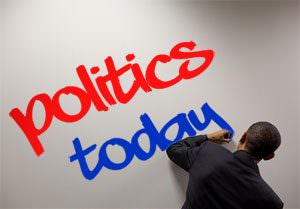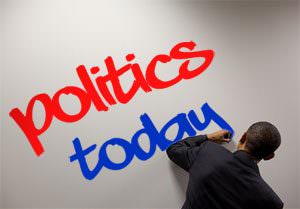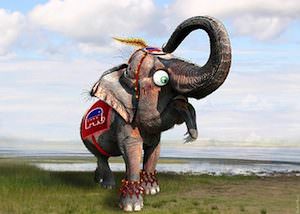Truthdiggers of the Week: Women in the U.S. Senate
Tuesday’s election saw women take a record number of seats in the U.S. Senate. One-fifth of the legislative body no longer belongs to the good old boys.
Tuesday’s election saw women take a record number of seats in the U.S. Senate. One-fifth of the legislative body no longer belongs to the good old boys.
Five new women were elected to the Senate, raising the number of female lawmakers in the chamber from 17 to 20. Democrat Elizabeth Warren will become the first female senator in Massachusetts history after she defeated incumbent Republican Scott Brown. Republican Deb Fischer emerged victorious over Democrat Bob Kerrey and will be the first full-term female senator from Nebraska.
Democrat Heidi Heitkamp, North Dakota’s attorney general, won a Senate seat in her state, while Hawaii Democrat Mazie Hirono became the first Asian-American woman elected to the Senate. Tammy Baldwin will become the first openly gay U.S. senator after she beat former Gov. Tommy Thompson in Wisconsin.
Democrat Claire McCaskill bested Todd “legitimate rape” Akin to maintain her Missouri Senate seat.
About half of this year’s 33 Senate contests featured women whom observers considered electable — another record number, The Washington Post reports. The election of six women to the Senate in 1992 prompted the media to deem it the “Year of the Woman.” The 2012 additions mark another milestone.
“Not since the so-called ‘Year of the Woman’ in 1992 have we seen such a leap in the number of women stepping forward to contend for congressional seats,” Center for American Women and Politics director Debbie Walsh said a few weeks ago. “Many of the same factors are in play — the crucial first election after reapportionment and redistricting, news events underscoring the need for women’s voices in policymaking, and a presidential election year generating political excitement.”
Washington Post reporter Suzi Parker suggests that a higher number of women in Congress means that male lawmakers will have a tougher time pushing through anti-female legislation.
“With more women in Congress, men may have greater difficulty passing anti-woman bills when they have to look their female colleagues in the eye and justify their reasoning. Female senators could — and likely will — introduce more legislation that benefits women’s rights and needs,” she wrote.
For their historic gains this week, we honor the women named here and their path-forging predecessors as our Truthdiggers of the Week.
— Posted by Alexander Reed Kelly.
Your support matters…Independent journalism is under threat and overshadowed by heavily funded mainstream media.
You can help level the playing field. Become a member.
Your tax-deductible contribution keeps us digging beneath the headlines to give you thought-provoking, investigative reporting and analysis that unearths what's really happening- without compromise.
Give today to support our courageous, independent journalists.






You need to be a supporter to comment.
There are currently no responses to this article.
Be the first to respond.